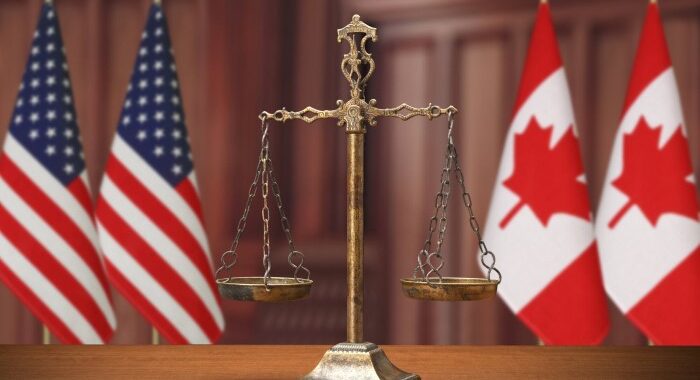Columbia University Suit Files a Title IX Lawsuit Against Sexual Assault Victim Amelia Roskin-Frazee

In February, a Columbia University student filed a federal lawsuit against the school. Amelia Roskin-Frazee, an undergraduate student, claims that she was subjected to sexual assault on two separate occasions on the Columbia University campus. The college denied any wrongdoing and accused officials of indifference and inaction. She alleged that the college violated Title IX, which prohibits discrimination based on gender.
Columbia’s response to the allegations was swift and uncharacteristic.
The school has a history of sexual misconduct, and the allegations in Nungesser’s Columbia lawsuit are incredibly compelling. The school has repeatedly denied that the incident occurred, but the New York Post has republished the article, and the Blue & White published a similar story but didn’t identify the victim. When Sulkowicz first published the cases in April 2014, he did not name Nungesser. In May, the Columbia Spectator first published a report that revealed Nungesser’s name as a “sexual assault violator” in the school’s restroom.
The lawsuit claims that Columbia improperly charged grants for work that was not dedicated to the projects funded by the federal government. The case stemmed from a whistleblower complaint filed in 2011. Love, the former director of finance at ICAP, agreed to settle the case. During a court hearing, the university acknowledged its mistakes and apologized to Nungesser. Despite the lawsuit, Columbia has not disclosed the names of the two professors involved in the incident.
The second amended complaint will be filed in January 2015.
The plaintiff has yet to identify the other professor. The case will be heard by a judge. While it is unlikely that Columbia will win the lawsuit, it remains an important step forward for men who want to protect their rights. And now is the time to take action. There is no reason for the university to continue the culture of fear and misogyny that is prevalent in today’s universities.
Even though this case involves the Columbia University campus, Leeper’s claim is still valid. He worked for the university for 14 years before being reassigned to a position in the office of the senior director of technology infrastructure. In that role, he had nearly unlimited access to Columbia’s private computer network. He also had access to the university’s secure email account. After leaving the university, he had opened a separate account, which was later deleted.
In the second amended complaint, Nungesser says that Leeper gave a dormant account new permissions, which allowed it to access other Columbia employees’ email accounts.
She’s also claiming that Columbia misappropriated information from the email accounts of male students. She’s seeking economic damages, punitive damages, attorneys’ fees, and a permanent injunction against Denali from using information obtained from its employees.
The suit against Columbia is a result of the wrongful charging of grants for work that was not dedicated to funded projects. It is based on a whistleblower’s complaint. In the lawsuit, the university admitted to mischarging grants and submitting inaccurate cost reports. In its defense, the university emphasized that it was committed to full compliance with federal research funding requirements and regretted the administrative shortcomings it had during its rapid growth.
The lawsuit claims that Columbia mischarged grants for work that was not dedicated to projects funded by the federal government.
Initially, the lawsuit alleged that Columbia’s costs were incorrectly reported. It later cited evidence that the college used unauthorized costs to charge the grants to the plaintiff’s case. The court approved the settlement, and both sides reaffirmed that their mistakes had been rectified. In addition, the university’s website contains false information about the lawsuit.
The suit against Columbia alleged that the school mischarging grants related to work that was not dedicated to funded projects were unlawful. It also claimed that Columbia mischarging grants were a violation of federal laws. It was based on false statements and fabricated information about the conduct of the Columbia University Medical Center and its president. The plaintiffs’ attorneys, however, say they believe that the university’s actions violated the law and deprived Nungesser of his constitutional rights.
The District of Columbia filed a lawsuit against Crocs Inc., accusing the company of misappropriating trade secrets, violating a duty of loyalty, and engaging in illegal activities. The complaint asks the court to halt sales of certain footwear and to confiscate all profits derived from the sale of such products. The case is an example of the government’s efforts to protect consumers’ rights. There is no precedent for these allegations.

 Voluntary Disclosure in Canada: What Are Its Salient Features?
Voluntary Disclosure in Canada: What Are Its Salient Features?  Inappropriate Touch During a Massage: What to Do and Your Legal Rights
Inappropriate Touch During a Massage: What to Do and Your Legal Rights  Understanding the Difference Between American and Canadian Law Systems
Understanding the Difference Between American and Canadian Law Systems  Common Process Service Mistakes and Ways to Avoid Them
Common Process Service Mistakes and Ways to Avoid Them  Officer LaPointe Pasco County Lawsuit: An In-Depth Overview
Officer LaPointe Pasco County Lawsuit: An In-Depth Overview  What to Do When a Loved One is Arrested
What to Do When a Loved One is Arrested  NIO Class Action Lawsuit
NIO Class Action Lawsuit  Nine Energy Lawsuit
Nine Energy Lawsuit  Nikola Class Action Lawsuit
Nikola Class Action Lawsuit  Nicole Arbour Lawsuit
Nicole Arbour Lawsuit